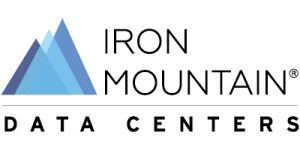Why Bare Metal Servers Are Making a Comeback in 2025
The Return of Physical Control in a Virtualized WorldFor years, the trend in enterprise computing was clear: virtualization, abstraction, and consolidation. Cloud platforms promised agility, elastic scaling, and simplified operations. But in 2025, a countertrend is gaining serious momentum—the return of bare metal servers.These physical, single-tenant servers—once thought obsolete in the era of cloud-native development—are now being reembraced by startups, AI firms, financial institutions, and even cloud providers themselves. Not because they’re nostalgic, but because bare metal is solving real, modern problems in performance, predictability, and control.This comeback isn’t about abandoning the cloud. It’s about regaining architectural control in a world where cloud bloat, cost unpredictability, and performance interference are becoming too big to ignore.What Is Bare Metal—and Why It Matters AgainA bare metal server is a physical server dedicated to a single tenant. Unlike virtual machines or containers, there’s no hypervisor layer between the user and the hardware. You get full control of the CPU, RAM, storage, and network interface, with no neighboring workloads competing for resources.This matters in 2025 because many modern workloads—especially in AI, gaming, edge compute, and blockchain—demand:Low latencyHigh throughputPredictable I/OCustom software stacksFull root access for performance tuningBare metal delivers all of the above. It is becoming a strategic layer beneath the cloud, giving developers and infrastructure teams a way to run performance-critical workloads without the abstractions and penalties of shared environments.The Use Cases Driving Bare Metal’s ResurgenceBare metal is growing fastest in industries where latency, performance, or cost predictability matter most.1. Artificial Intelligence and Machine LearningTraining large models or running inference at scale requires consistent, high-performance compute. Virtualization overhead, NUMA node uncertainty, and noisy neighbors can introduce unacceptable variance.With bare metal:AI teams can pin jobs to coresControl GPU affinityOptimize RAM bandwidthReduce jitter during training runs2. Gaming and Real-Time ApplicationsMultiplayer gaming, VR platforms, and live streaming systems require microsecond response times. Game servers hosted on VMs often suffer from CPU steal time or unpredictable packet latency.Bare metal lets gaming companies deploy dedicated, tuned environments that deliver better player experiences, with fewer lag spikes and disconnects.3. High-Frequency Trading and FinanceBanks and trading firms have long favored bare metal for running algorithms and order matching engines. In 2025, they’re doubling down as real-time risk modeling and blockchain-based clearing platforms emerge.Bare metal offers deterministic performance and auditability that virtualized platforms can’t match.4. Edge ComputingBare metal is ideal for deployment in edge locations—telco exchanges, retail branches, vehicles, or industrial plants—where small form factor, consistent latency, and full-stack control are necessary.Containers can run on top, but the underlying physical server is owned, managed, and optimized for its specific use case.5. Privacy-First or Regulated EnvironmentsIn healthcare, government, and defense sectors, multi-tenancy is a liability. Bare metal offers physical and logical isolation that simplifies compliance, particularly with frameworks like HIPAA, FedRAMP, GDPR, and the EU AI Act.Economic Drivers: Cloud Cost FatigueCloud was supposed to be cheaper. For many, it is—until workloads scale. Then, it becomes a tangle of:Egress feesIOPS costsAPI meteringStorage overageHidden orchestration overheadBare metal simplifies this. Pricing is flat. Performance is predictable. Teams know exactly what they’re paying for and what they’re getting.Startups are especially drawn to bare metal when they hit $10K/month+ cloud bills and realize they could own better performance for less money.Bare metal pricing models in 2025 often include:Hourly or monthly leases with no overagesFlat-rate GPU rentalsCustom cluster deploymentsReserved capacity discountsMany providers also allow bring-your-own-license (BYOL) for operating systems and databases, further improving cost efficiency.Cloud Providers Are Offering Bare Metal TooIronically, some of the biggest growth in bare metal is happening inside cloud platforms themselves. AWS, Google Cloud, Oracle, and Microsoft Azure now offer bare metal instances with:No hypervisorDirect PCI passthrough for GPUsHardware isolationFull root accessThis hybrid model allows teams to get the benefits of bare metal while retaining some cloud-native conveniences (e.g., security groups, IAM, monitoring).However, these offerings often come at a premium and are subject to quotas. That’s why many high-growth firms are turning to independent bare metal providers like:DedicatedNodesOVHcloudEquinix MetalHetznerPhoenixNAPVultr High PerformanceThese companies specialize in high-density, high-performance bare metal that’s built for modern workloads.Bare Metal in the Multicloud and Hybrid EraIn 2025, most large enterprises run hybrid and multicloud architectures. Bare metal fits perfectly into this reality:As the base layer for Kubernetes clustersAs a secure edge environment that integrates with central cloudsAs a failover platform for cloud outages or policy conflictsAs a cost-optimized tier for running predictable, long-duration jobsMany teams run their databases, inference pipelines, or media transcoders on bare metal, while using cloud for orchestration, UI, or burst workloads.This layered approach blends the flexibility of the cloud with the performance and cost control of metal.Performance Optimization and CustomizationBare metal gives teams full-stack control. That means they can:Customize the operating system (e.g., Linux kernel tuning)Install real-time schedulersPin CPU cores to threadsControl NUMA zones and memory topologyAttach GPUs, FPGAs, or NVMe over FabricsFor performance-sensitive teams, this control is gold. It enables consistent benchmarking, predictable SLOs, and platform-specific tuning that’s impossible on shared infrastructure.ESG and Sustainability ConsiderationsOne surprising advantage of bare metal is hardware efficiency. With full control over resources, teams can:Consolidate workloads more tightlyAvoid overprovisioningOptimize power usageReuse hardware longerSome providers offer second-life servers—decommissioned but powerful hardware repurposed for cost-sensitive workloads.Others integrate with sustainable power grids, offering zero-carbon bare metal clusters that meet enterprise ESG mandates.Challenges to Keep in MindDespite its strengths, bare metal isn’t for everyone. It requires:More hands-on managementSkilled infrastructure engineersCustom automation pipelinesDeeper monitoring and observability toolsBut for teams willing to invest in operational maturity, the payoff is considerable—especially in high-scale or high-cost workloads.
























